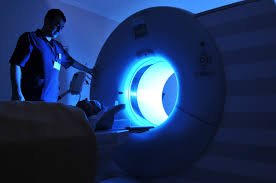Telix Doses First Patient In Phase 3 BiPASS™ Trial Evaluating Illuccix® And Gozellix® For Prostate Cancer Diagnosis
11 September 2025 | Thursday | News

Image Source : Public Domain
Telix Pharmaceuticals Limited announces it has dosed the first patient in a Phase 3 clinical trial aimed at expanding the indications for Illuccix® and Gozellix® (kits for the preparation of gallium-68 (68Ga) gozetotide injection) to include prostate cancer diagnosis.
BiPASS™ (Biopsy of the Prostate Avoidance Stratification Study[1]) is the first registration-enabling study to evaluate whether the combination of MRI[2] and PSMA-PET[3] imaging can improve sensitivity, specificity, and positive and negative predictive values in diagnosing prostate cancer. The aim of the study is to demonstrate that some patients can be effectively stratified to either avoid a biopsy altogether or undergo a single PSMA-PET guided biopsy instead. Telix plans to enrol 204 patients in Australia and the United States (U.S.) for the single arm, multicenter, prospective, open label, longitudinal Phase 3 study.
The first BiPASS™ patient was dosed under the supervision of Principal Investigator Professor Tony Costello AM at the Australian Prostate Centre (APC), and imaged by Professor Rodney Hicks AM, at the Melbourne Theranostic Innovation Centre (MTIC). The first patient biopsy was performed by BiPASS™ Investigator and Clinical Director at APC, Mr. Phil Dundee.
Prof. Costello, Founder and Director, APC said, "Urologists are often faced with the dilemma of whether or not to biopsy. This invasive and often painful procedure carries risks, with many men refusing it altogether. From a clinical perspective, when the biopsy shows low to intermediate risk cancer, it's unclear whether this represents the true burden of disease or sampling error. Combining MRI and PSMA-PET imaging has the potential to improve both the patient experience and diagnostic accuracy. As such, being part of this study is very important to the APC and our patients."
Prof. Hicks, Founder, Chair and Chief Medical Officer, MTIC added, "PSMA-PET plus MRI has the potential to fundamentally change prostate cancer diagnosis. Using existing technologies with proven performance in lesion detection at the start of the patient journey could improve the way we stratify patients – safely de-escalating treatment or using a single precision biopsy for diagnosis."
In the current diagnosis pathway, men with elevated PSA[4] values can be recommended for MRIs which are often inconclusive. A prostate template biopsy, which typically involves 12 – 20 needle biopsies, is commonly the next step, even in patients deemed as low risk on MRI. However, this non-specific procedure can still miss significant prostate cancer, and can be painful and subject to complications, with many found to be unnecessary. While more than 1 million biopsies are performed in the U.S. each year, up to 75% are negative[5]. Moreover, one in four patients refuse a recommended biopsy[6].
Adding an indication for prostate cancer diagnosis has the potential to significantly expand the U.S. market for Telix's twin commercial PSMA-PET imaging agents by approximately 800,000 scans[7].
BiPASS™ builds on a promising body of research, including the PRIMARY[8]. and PRIMARY2[9] studies, which demonstrated the advantages of MRI + PSMA-PET imaging in defining or ruling out prostate cancer, or in recommending participants undergo active surveillance before an invasive biopsy is performed. Professor Louise Emmett, Principal Investigator for PRIMARY, will continue her pioneering work as a BiPASS™ Steering Committee member and an Investigator on the study.
Prof. Emmett, Director of Theranostics and Nuclear Medicine, St Vincent's Hospital, said, "My colleagues and I have built a significant body of research on the benefits of PSMA-PET and MRI, documented in the PRIMARY studies and we are pleased to see Telix expand on this research with this registration-enabling study. BiPASS™ has the potential to positively impact all men by changing clinical practice and guidelines to facilitate earlier, more accurate prostate cancer diagnosis."
Most Read
- Innovations In Magnetic Resonance Imaging Introduced By United Imaging
- Management of Relapsed/Refractory Multiple Myeloma
- 2025 Drug Approvals, Decoded: What Every Biopharma Leader Needs to Know
- BioPharma Manufacturing Resilience: Lessons From Capacity Expansion and Supply Chain Resets from 2025
- APAC Biopharma Review 2025: Innovation, Investment, and Influence on the Global Stage
- Top 25 Biotech Innovations Redefining Health And Planet In 2025
- How Health Systems Are Reshaping Drug Adoption, Partner Models, and Market Access in 2026
- The New AI Gold Rush: Western Pharma’s Billion-Dollar Bet on Chinese Biotech
- Single-Use Systems Are Rewiring Biopharma Manufacturing
- The State of Biotech and Life Science Jobs in Asia Pacific – 2025
- Asia-Pacific Leads the Charge: Latest Global BioSupplier Technologies of 2025
- Invisible Threats, Visible Risks: How the Nitrosamine Crisis Reshaped Asia’s Pharmaceutical Quality Landscape
Bio Jobs
- The State of Biotech and Life Science Jobs in Asia Pacific – 2025
- Avantor’s New CEO Ligner Aims to Unlock Global Potential and Deliver Shareholder Value
- AstraZeneca Commits $50 Billion to U.S. Expansion by 2030 in Biggest-Ever Global Investment
- Thermo Fisher, SAMRC, and South Africa’s Department of Science and Innovation Launch CATIR to Nurture Next-Gen Scientists
- Cube Biotech Appoints Former Sartorius CEO Dr. Joachim Kreuzburg to Board of Directors
- FDA’s AI Transition Marks a Turning Point in Drug Review: Industry Faces Pressure to Adapt Amid 20% Workforce Cut
- WuXi XDC Completes Mechanical Build of Singapore Bioconjugate Manufacturing Hub
News
Editor Picks











